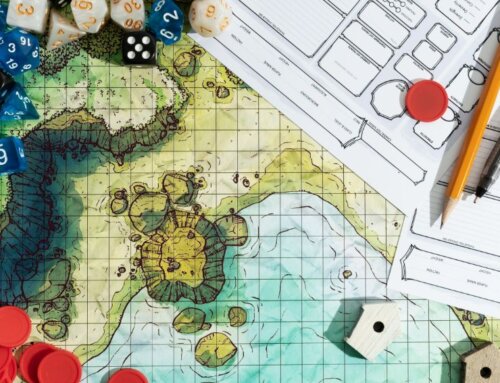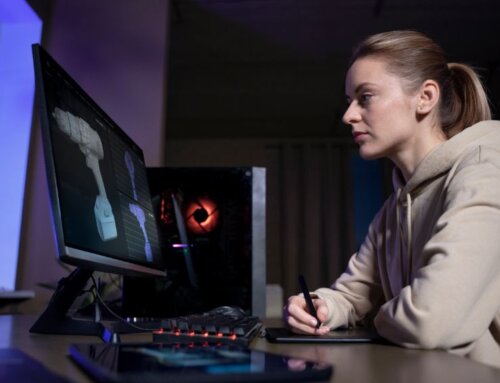Are you tired of your computer crashing every time you try to enjoy your favorite games? The frustration of sudden crashes can be a real buzzkill, but fear not, there are ways to tackle this issue head-on.
By understanding the common causes behind these crashes and implementing some key strategies, you can elevate your gaming experience to new heights.
Let’s explore some effective solutions to keep your gaming sessions uninterrupted and your computer running smoothly.
Key Takeaways
- Ensure hardware stability by avoiding overclocking and meeting system requirements.
- Update graphics card drivers for compatibility and performance improvements.
- Prevent crashes by troubleshooting software conflicts and network issues.
- Monitor and manage computer temperature to prevent overheating during gaming.
Common Causes of Game Crashes
Common causes of game crashes often stem from hardware and software issues that compromise system stability during gameplay. Game optimization plays a crucial role in ensuring smooth performance. When system requirements exceed your computer’s capabilities, crashes may occur due to the strain on the hardware.
Overclocking the CPU/GPU beyond stable limits can also lead to instability and crashes during gameplay. Additionally, outdated or incompatible graphics card drivers may cause games to crash unexpectedly.
Insufficient cooling within your system can result in overheating, triggering crashes as the components struggle to maintain optimal temperatures. It’s essential to pay attention to these factors and ensure that your system meets the necessary specifications to minimize the risk of game crashes.
Troubleshooting Computer Crashes
To effectively troubleshoot computer crashes during gameplay, begin by systematically examining potential hardware and software issues that could be causing the instability.
Start by identifying software conflicts that may arise from incompatible programs running simultaneously. Check for any applications known to conflict with the game or each other.
Troubleshooting network issues is also crucial; unstable network connections can lead to game crashes. Ensure your internet connection is stable and that there are no bandwidth limitations affecting gameplay. Additionally, consider firewall or antivirus software that might be blocking the game’s access to the network.
Updating Drivers for Gaming Stability
Updating your drivers is essential for ensuring gaming stability and performance optimization. Driver compatibility plays a crucial role in preventing crashes and ensuring that your gaming experience is smooth.
By updating your drivers regularly, you can address any compatibility issues that may arise with new games and hardware. Performance enhancements are often included in driver updates, allowing you to unlock new features, boost frame rates, and reduce input lag. These optimizations not only improve gameplay but also enhance overall system stability.
Additionally, keeping your drivers up to date can help prevent security vulnerabilities and ensure that your system runs smoothly even during demanding gaming sessions. Regular driver updates are key to maximizing your gaming experience.
Preventing Computer Overheating
Regularly monitoring and maintaining proper ventilation in your computer system is crucial to prevent overheating during intense gaming sessions. To improve airflow and dissipate heat effectively, ensure to clean dust from fans and hardware components regularly.
Consider using cooling pads or fans, especially when engaging in prolonged gaming sessions. Opening one side panel of the computer case can also help in better heat dissipation and cooling of internal components.
Monitoring CPU and GPU temperatures using software tools is essential to prevent overheating and potential crashes while gaming. If necessary, add additional case fans or upgrade to a more efficient cooling system to maintain optimal temperatures during gaming sessions.
Checking Hardware for Gaming Performance
When optimizing gaming performance, it’s crucial to check the temperatures of your GPU and CPU to ensure they’re within safe ranges for optimal gameplay.
Proper hardware maintenance is essential for peak performance. Ensure your RAM meets the game’s requirements to prevent crashes.
Verify that your power supply unit (PSU) can handle the system’s power demands to avoid sudden shutdowns during intense gaming sessions.
Clean internal components like fans and heatsinks to prevent overheating and system instability.
Monitoring the performance of your hard drive or SSD is also crucial for fast loading times and smooth gameplay.
Conclusion
In conclusion, addressing common causes of game crashes such as outdated drivers, overheating, and hardware issues is crucial for a stable gaming experience.
By troubleshooting crashes, updating drivers, preventing overheating, and checking hardware performance, you can enhance your gaming sessions and avoid frustrating interruptions.
Remember to stay proactive in maintaining your system to ensure smooth gameplay and prevent future computer crashes.
Check out other related articles:
https://ps3trophies.co.uk/entertainment/2024/09/13/how-to-develop-ios-games/
https://ps3trophies.co.uk/entertainment/2024/09/12/how-to-copy-roblox-games/






Leave A Comment